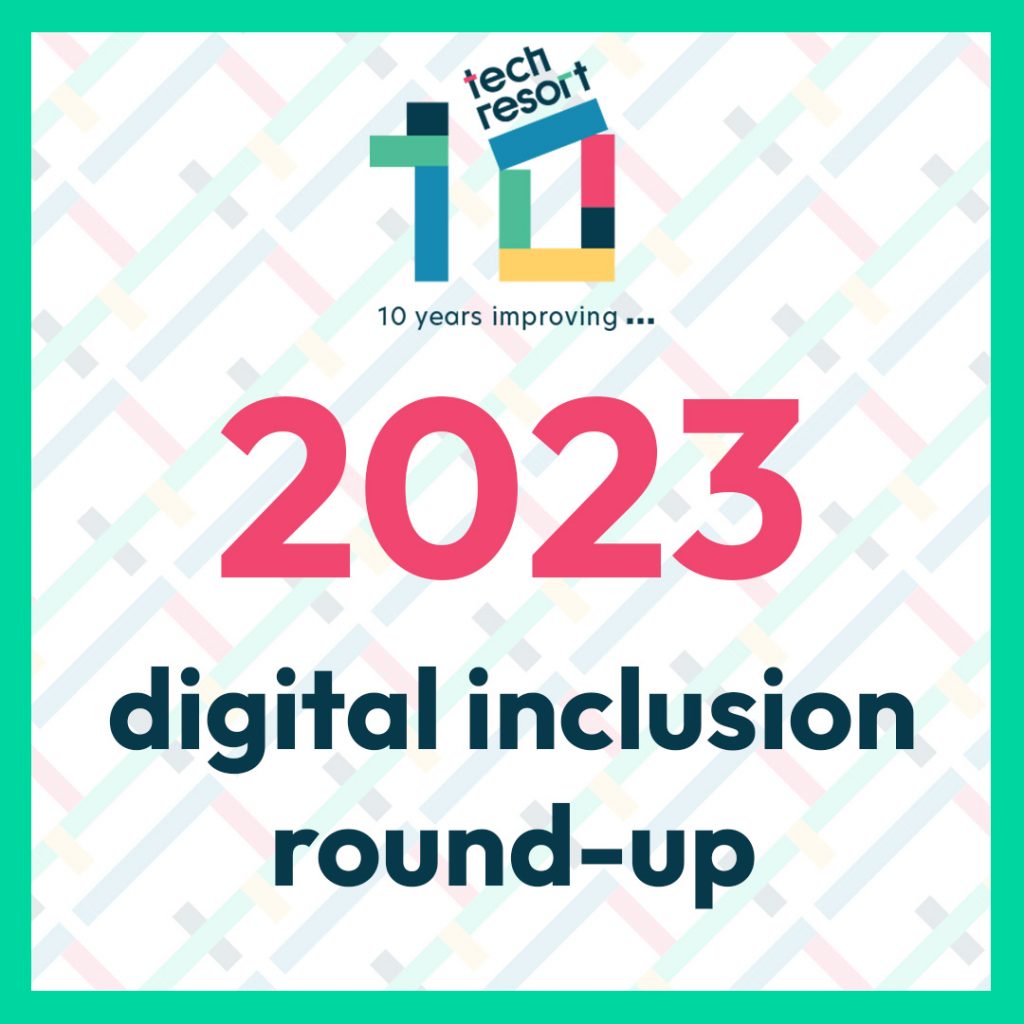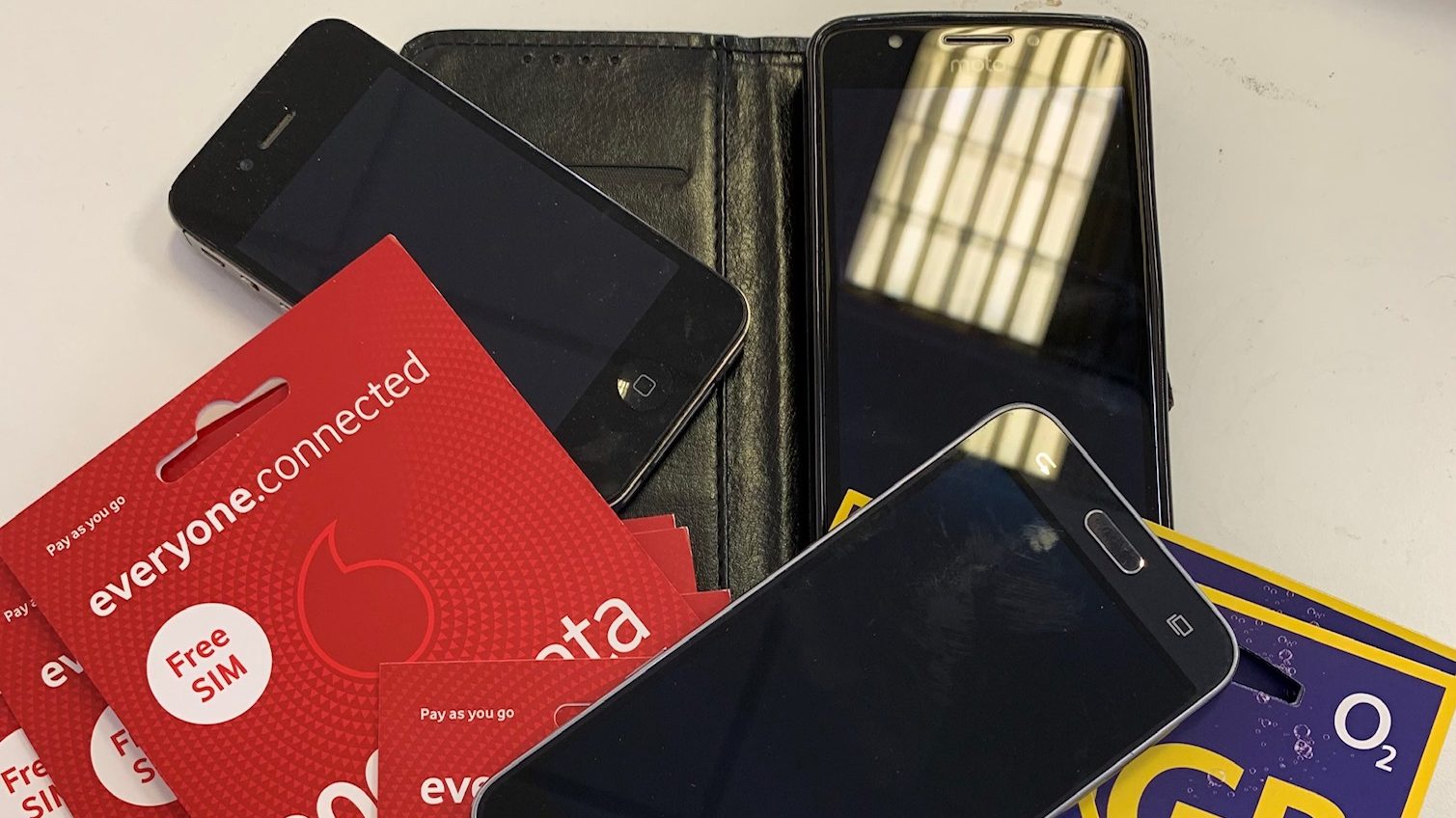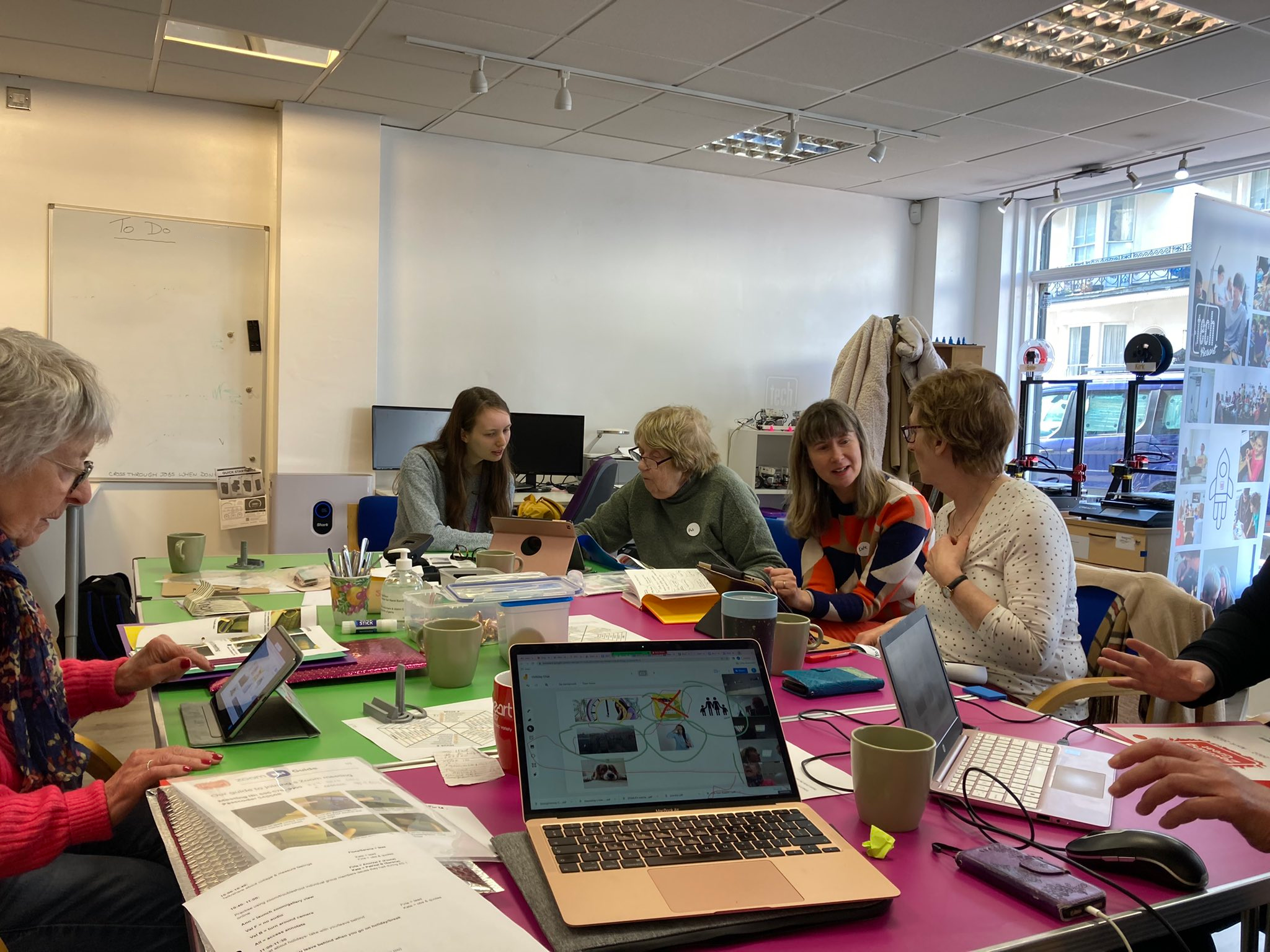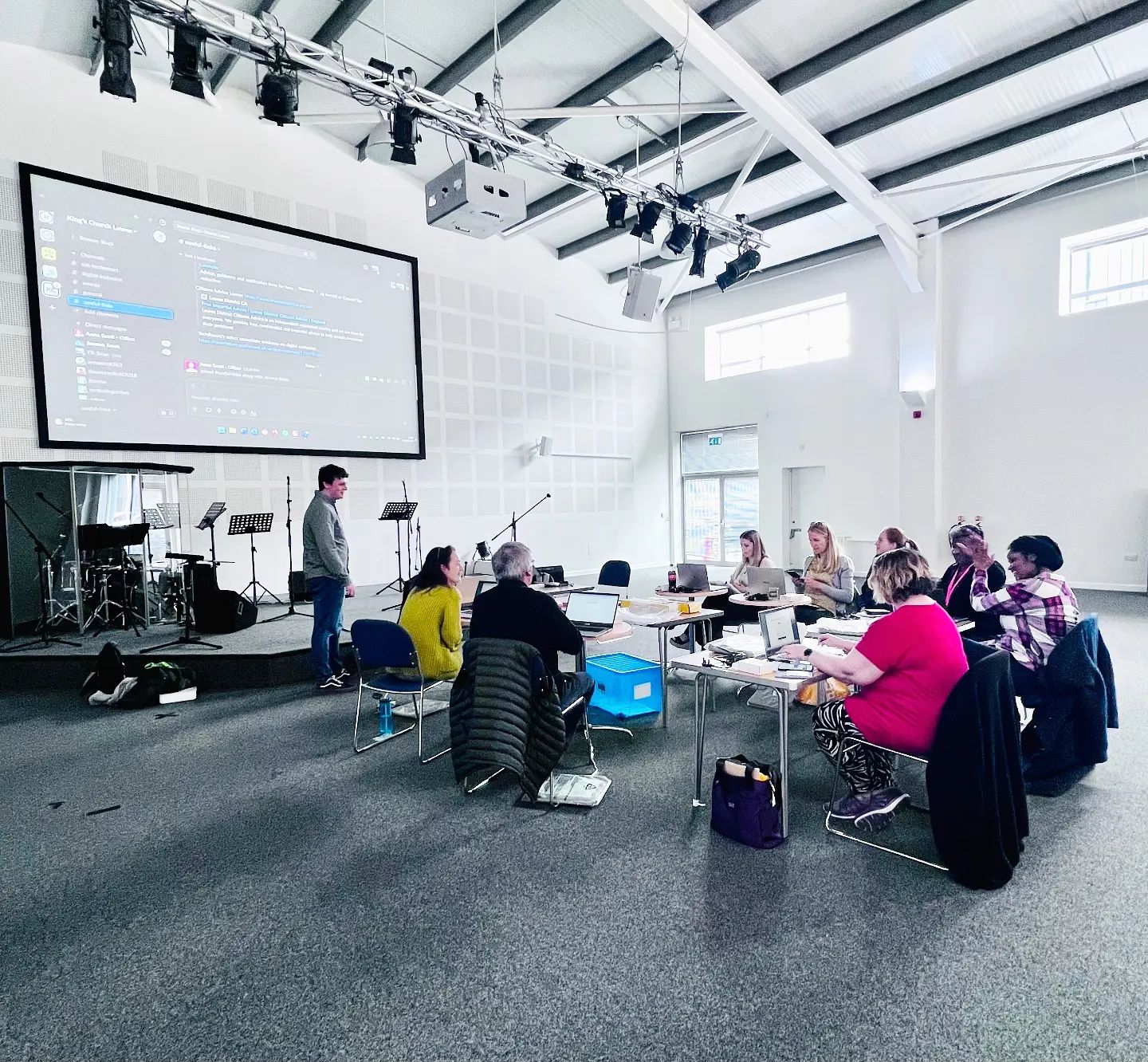As we begin to wind down for this year – in which we’ve celebrated our 10th anniversary – and prepare for 2024, it’s time to look back on what we’ve been doing to tackle digital exclusion in our community.
We’ve done this through three types of work – free drop-in sessions; device donations; and consultancy to help other organisations understand and provide digital inclusion support.
What we’re seeing is a huge increase in demand for digital help from the most excluded – digital exclusion goes hand-in-hand with other forms of poverty and social exclusion.
Many of the people who are most digitally excluded don’t have the time or motivation to seek out support […] if someone is living on a low income, meeting more immediate needs like feeding a family or affording transport to work will always be top of mind
Digital Poverty Alliance, UK Digital Poverty Evidence Review 2022, p.30
It’s vital that key decision makers at local authorities, central Government, and funding bodies understand the impact of being offline today. If you’re a decision maker – please get in touch. We’d love to talk to you about digital inclusion, show you what a drop-in session is like, or how we’re able to refurbish devices to go out to those in need.
Being digitally excluded for the majority of our clients is not by choice – interactions with online services continue to move towards online-first, or online-only. The cost of connection and a lack of digital skills are the biggest barrier that we’re addressing.
Exclusion leaves people unable to access healthcare information and services via the NHS app; fill out essential forms; claim benefits; stay in touch with loved ones and support networks; apply for jobs – and so on.
Digital drop-in help
In 2023, we’ve had 684 visits to our free digital drop-in sessions; an increase of more than treble compared to last year.
Nearly half of these sessions have been at our base in Cavendish Place, where we’re open every Thursday and Friday from 12-5pm for drop-ins.
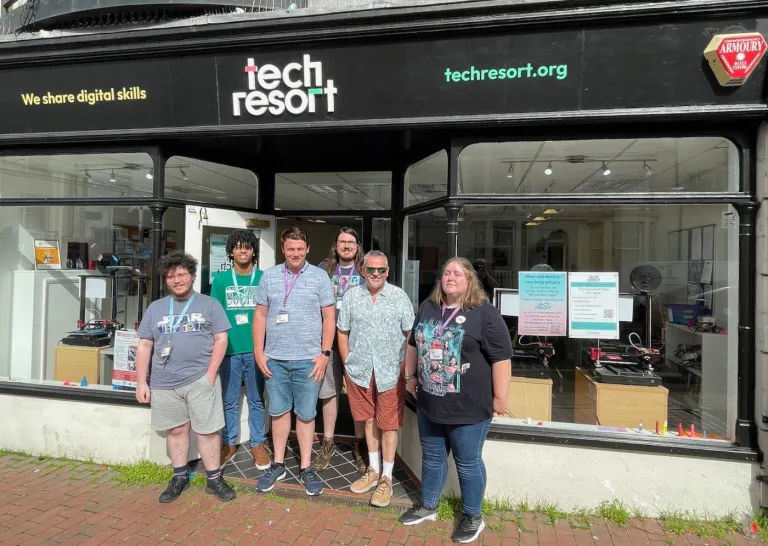
The remainder have been at venues in the community – we’ve been to a range of venues and worked alongside fantastic support organisations such as Citizens Advice 1066, Eastbourne Foodbank, Bexhill Primary Care Network, Age Concern, and others. We’ve had a presence not only in Eastbourne, but also in Lewes, Bexhill, Newhaven, Peacehaven, and Seaford. Find out more about our drop-in sessions.
We’re now running 25 drop-in sessions per month
Most commonly, we help with:
- Filling out forms – such as applying for college courses, or keeping Universal Credit journals updated
- Staying safe on the internet – by setting strong passwords and enabling two-factor authentication, and learning how to spot scams
- Installing and logging in to the NHS App
- Setting up new devices
- Transferring and backing up data
- Managing files and emails
- Learning how to use essential apps for work, such as Word and Excel
We’ve also, thanks to funding from SGN/CSE, been able to provide energy-related information on keeping warm and reducing bills, alongside our digital support.
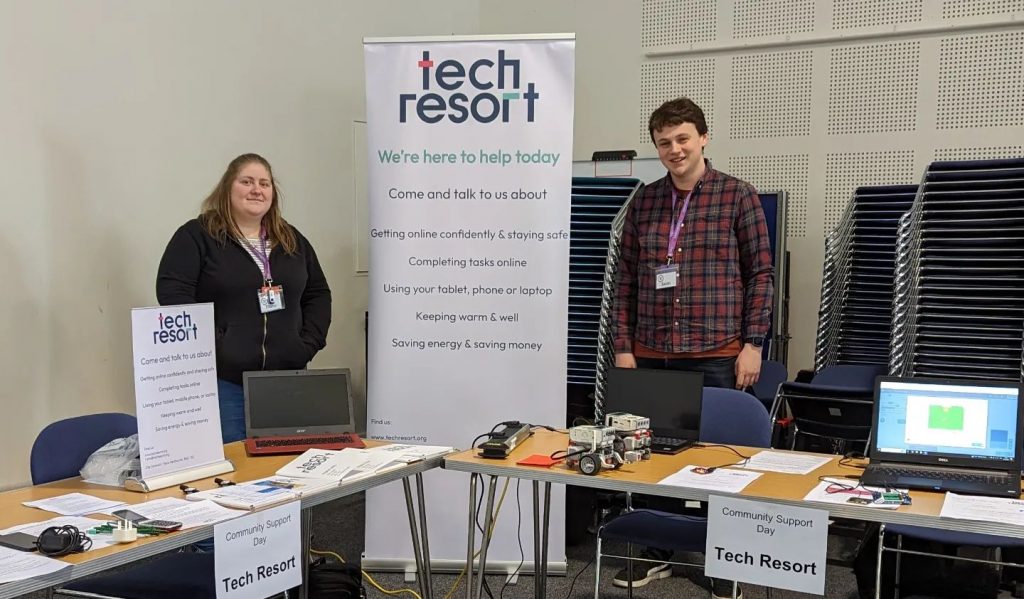
Building relationships, and working at established support venues, allows for people to receive digital support from us alongside getting other forms of help – and helps to remove barriers accessing tech help. Around half of our clients come back to drop-in sessions several times for help.
Usually, tackling any immediate problems, and then working to gradually build confidence – without jargon or judgement – we find to be the best approach. This informal model also helps reduce social isolation and loneliness in already marginalised people in our community, by giving someone a friendly face to talk to while they get some tech help – learning skills online or in a classroom just cannot replicate this.
With an estimated 13 million people lacking basic digital skills (Lloyds Bank, UK Consumer Digital Index), it’s vital we’re able to help people learn on their own terms. On average, a visit to a drop-in for digital skills help lasts around 30 minutes.
Learning new skills can be daunting, particularly when there is a urgent need to learn how to use a new device or app; we don’t want to overwhelm people and leave them discouraged if they can’t figure something technical out the first time around. Having an established and regular presence allows people to come back as many times as they would like!
We’ve provided over 330 hours of free digital skills support this year
A challenge we continue to face is that most of our funding is often restricted to helping in certain geographic areas, or visitor demographics. Despite this, we have an “open-door” policy – there is no eligibility criteria for accessing any of our drop-in sessions; everyone is welcome at all times.
Device donations
In 2023, we’ve donated over 185 devices to digitally excluded members of our community.
Eastbourne had the busiest Foodbank in the country per capita last year – we know the upfront cost of a device, as well as the ongoing cost of connectivity, is another expense many aren’t able to meet.
Citizens Advice estimated that 1 million people lost their broadband access during the cost of living crisis – with those on Universal Credit six times more likely to have disconnected.
Exclusion is a vicious cycle – those who would financially benefit the most from being online are also those who pay a ‘poverty premium’ for not being online. A report this year by the Centre for Social Justice showed that without internet access, people can pay up to 25% more for everyday goods and services; those buying offline don’t have the same access to online-only discounts or price comparison tools.
“Many thanks for the laptop. I was, until I received it, without good access to the internet and unable to apply for jobs online. This will allow me to find a job and manage my finances. I am so, so grateful for what I have received”
A client emailed this to us, shortly after receiving a laptop
We can combine the device donation with our digital skills support, to help everyone who receives a device to become a safe, confident, and independent digital user.
Our device donation scheme has enormous benefits for the environment – extending the lifespan of devices not only saves them from being discarded, but is a lifeline for somebody in need. Find out more about our device donation scheme.
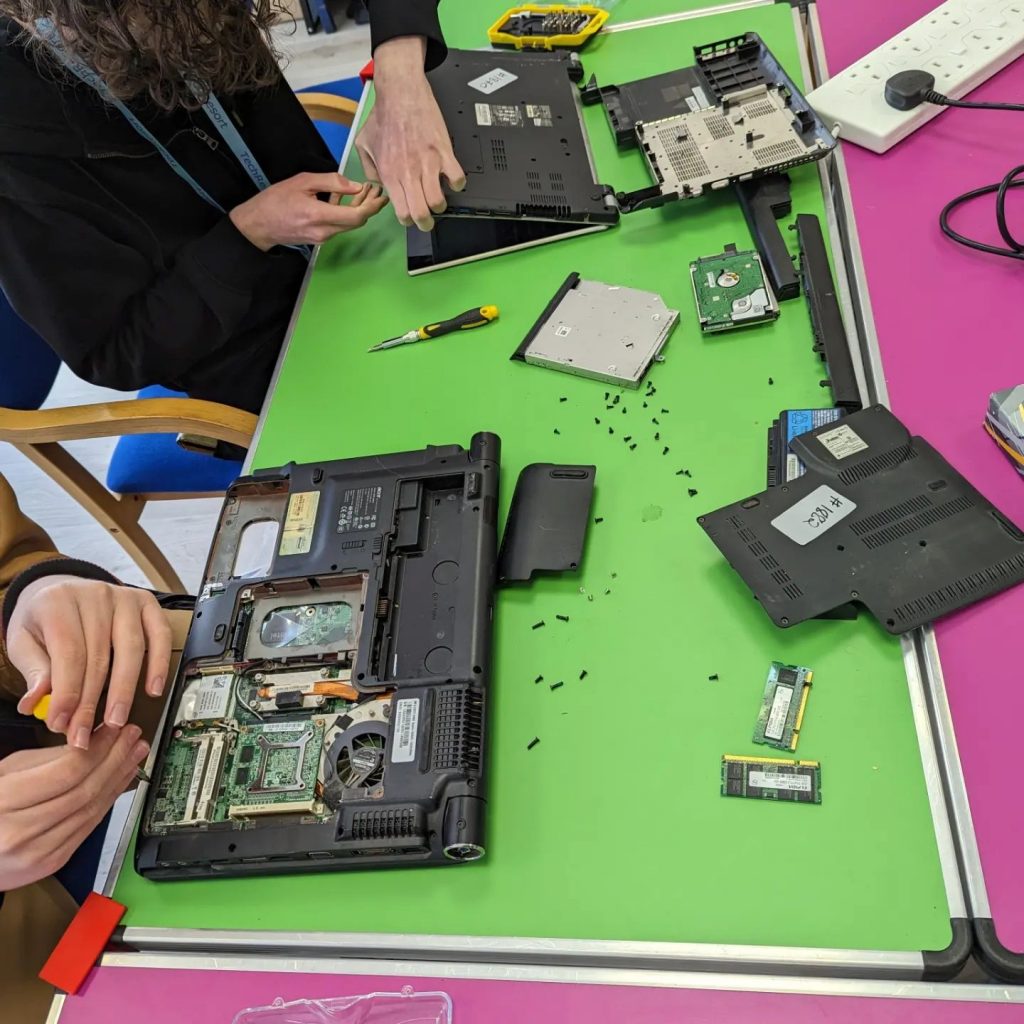
The majority of the work on our refurbished devices is carried out by our fantastic young team, who are gaining valuable employability skills while helping some of the most vulnerable in our local community. You can read an article featuring some of our team on the “Eastbourne Reporter” website.
“I came in to get my own laptop fixed – whilst I was there, a gentleman came in to pick up a recycled mobile phone. It was amazing to see the smile on his face […] being there and seeing it first-hand made me realise the fantastic work TechResort are doing”
Kerry Brown. Project Officer – Cost of Living. Lewes District & Eastbourne Borough Councils. Listen to our full interview with Kerry.
If you, or your business, has any spare devices – please consider donating them to us, to help tackle digital exclusion. We’ve currently got our largest waiting list yet of people who need to get online. The most in-demand type of device is currently smartphones, but we’re also asked for laptops and tablets. Please get in touch if you have any devices to spare.
Consultancy
Our experience working directly with clients, providing digital help, also allows us to provide advice on providing digital inclusion support. Read more about our consultancy work here.
The nationwide platform providing advice councils we co-founded, the Digital Inclusion Toolkit, has continued to grow this year and is now sponsored by dxw, which will allow us and our partners to keep this resource going.
Our COO Liz has also lead on the digital inclusion element of the multiagency financial inclusion steering group for East Sussex County Council. Another of our directors, Miles, has chaired the Lewes District Cost of Living Partners Action Group, where we’ve been able to help organisations understand digital exclusion and work with them to provide drop-in support.
It is through our work with the action group that we met with King’s Church, Lewes. They already host a weekly Foodbank and warm space session, and began to recognise digital exclusion was a problem facing many of their visitors.
Keen to tackle it, they gathered a group of keen volunteers and asked us to help them source equipment, and provide training. They’ve now added a “Digi Hub” space to their activities on a Monday morning – we also set up a Slack group so they can ask us any technical questions! You can read more about our work on our case study blog post.
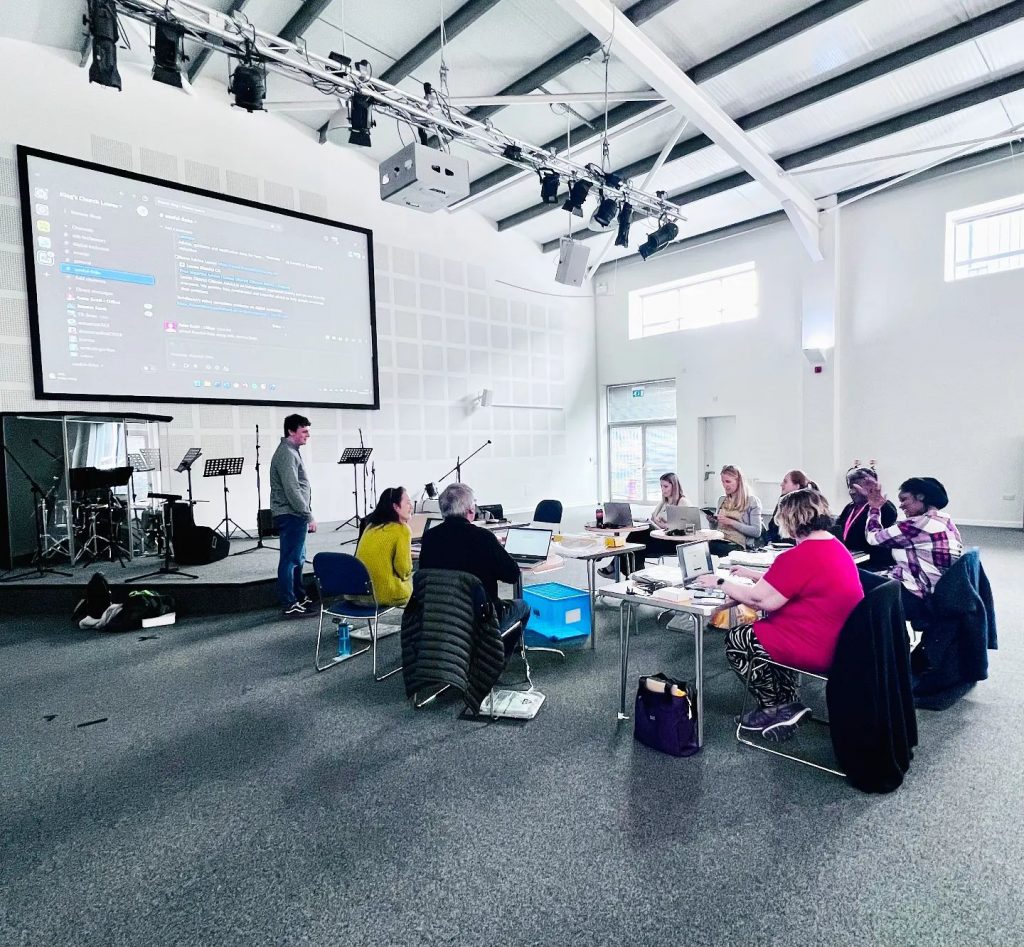
It was also delightful to help Hastings HEART develop digital inclusion as part of their “Community Info Hub” – donating them two desktop computers and providing training for their volunteers.
For over 80% of our visitors to the hub, one reason they’ve come in is digital exclusion […] I can’t explain what a huge difference TechResort has made to our organisation and the services we’re running
Kim Batty, co-founder, Hastings HEART. Listen to Kim’s full interview with us.
Onwards and upwards
While we continue to face funding challenges, we’re determined to keep providing digital inclusion support without barriers. With another year’s valuable experience behind us, we feel better prepared to continue tackling exclusion and help others to do the same.
Our work shows there is constant demand and need for digital support in our area, and that our approach is working. We’re particularly keen to collaborate with groups in areas where we currently aren’t reaching, or to hear from other groups elsewhere in the country to swap notes.
If you can support us, would like to know more about our work, or have any questions – please do get in touch.

